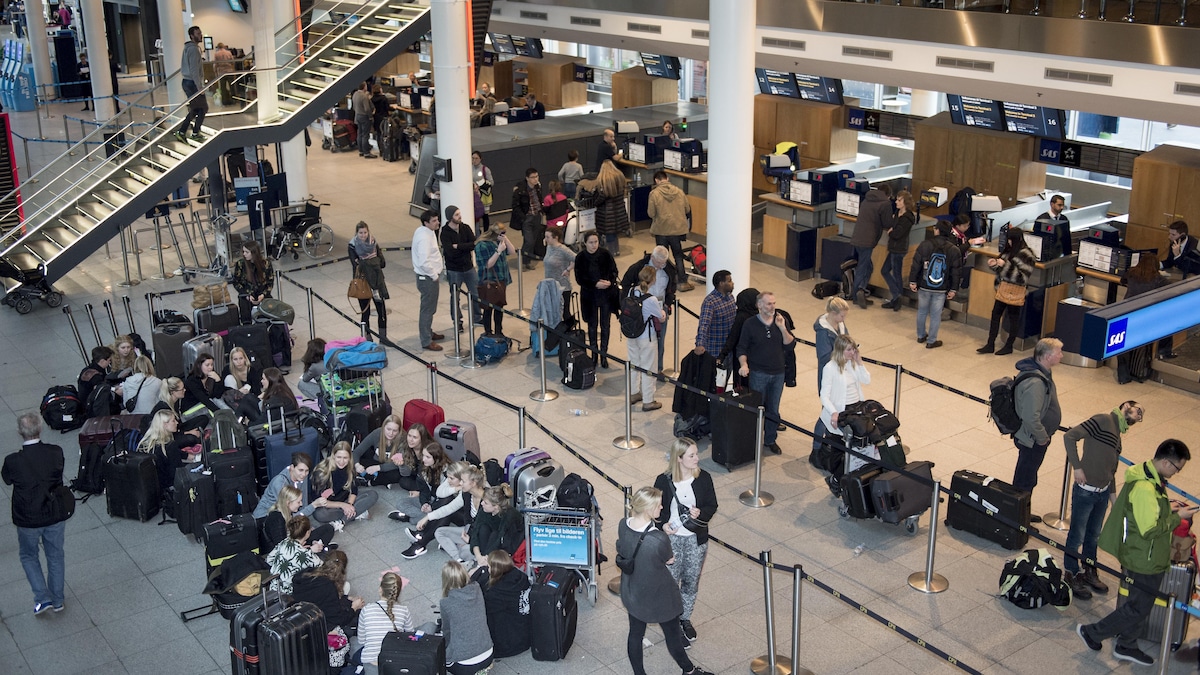Dear SAS Customer Relations,
Thank you for your response and for taking the time to re-evaluate my case. However, I would like to formally request another review, as I believe that the reasons provided do not fully account for the circumstances that led to my delay.
1. The root cause of the delay was the late arrival of SK915 - a non-extraordinary circumstance
The delay of SK916 was a direct consequence of the inbound delay of SK915 from Copenhagen. I received an official notification from SAS stating that SK916 was delayed
before any ATC restrictions came into play. According to SAS crew on board, the delay originated from
de-icing in Copenhagen, which is a foreseeable and recurring operational challenge during winter.
Had SK915 arrived on time, the ATC delay would not have affected my journey.
The primary cause of this disruption was the late arrival of
flight SK915 from Copenhagen, which delayed the departure of
SK916 from New York (JFK).
- Additionally, the Court of Justice of the European Union (CJEU) has ruled in Case C-294/10 (Eglītis & Ratnieks v. Latvijas Republikas Ekonomikas ministrija) that an airline is responsible for ensuring punctuality in aircraft rotations and that delays due to a late inbound aircraft are not considered extraordinary circumstances.
Given this ruling, the delay of SK916 should be classified as an
operational issue within SAS’s control, not an extraordinary event.
2. The "unaccounted delay" aligns with the missed de-icing slot and subsequent rescheduling
The "unaccounted 63 minutes" in your response appears to have been caused by SK916 missing its original slot for de-icing. This aligns with the captain's announcement that we had to queue for de-icing and then wait for a new takeoff slot. These delays were
a direct result of the late arrival of SK915, and not due to unexpected ATC restrictions alone.
3. SAS failed to take reasonable measures to minimize my delay
In the email I received from SAS regarding the initial delay, SAS stated that:
"We are monitoring your connecting flights and will rebook you to your final destination in case of a missed connection."
Despite this, SAS
did not proactively rebook us on SK430, which would have allowed us to land at
14:55 instead of significantly later. At the time the delay was confirmed on February 15, there were still available seats on SK430 for February 16, but instead, we were left to queue at customer service
after landing, by which time alternative flights were fully booked.
According to EU261/2004, airlines must take all
reasonable measures to minimize the impact of a delay, which SAS failed to do in this case. This avoidable inaction contributed to our extended delay and should be considered in the evaluation of our compensation claim.
Request for reconsideration
Since my arrival at my final destination was delayed by
9 hours and 52 minutes, I request compensation of
600 EUR per passenger, as outlined in
Article 7 of EU Regulation 261/2004. I kindly ask for a detailed reassessment of my case, taking into account:
- The fact that the delay originated from the late arrival of SK915, which cannot be classified as an "extraordinary circumstance."
- The chain reaction of delays, where de-icing and missed takeoff slots were a consequence of the original delay.
- SAS’s failure to proactively rebook us on an earlier alternative flight, despite knowing about the delay in advance.
I appreciate your time and consideration and look forward to your response.
Best regards,
XX

